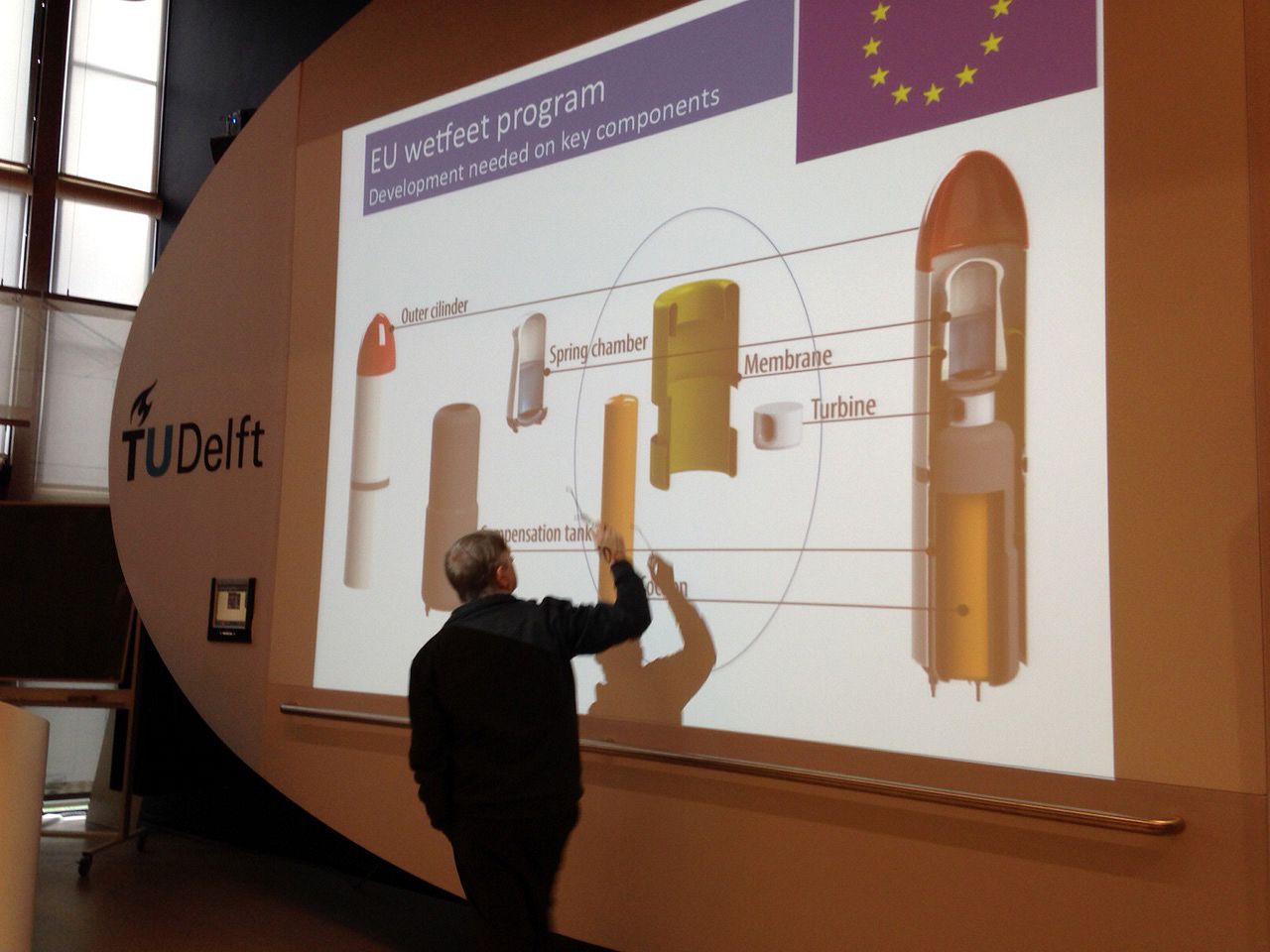Ocean energy veteran Fred Gardner shared his experiences in a lunch lecture on Monday, November 23, 2015. His main insight: since failing is inevitable, you’d better do it on a small scale.
With over 20 years of experience as an inventor, an entrepreneur and as a lecturer (at Hogeschool Inholland), Fred Gardner knows what he’s talking about when he said ‘knowledge hampers innovation’ or ‘big companies are too risk-averting to innovate’. Gardner has brought his idea for the Archimedes Wave Swing – an underwater oscillating buoy that generates electricity – from idea via a working prototype into a sell. But somehow the project got stuck after that.
Older, wiser but just as driven as before, he now works on a smarter and simpler exploitation of the same principle. The Symphony is an anchored cylinder that floats beneath the waves. It is tuned to resonate with the waves passing overhead so that it amplifies the wave height. As it goes down, a rubber contained liquid is pressed through a pump that drives a generator. A volume of air on top of the liquid acts as a spring counteracting the moving mass. The smart and simple design of the Symphony combines many functions into a few critical components.
Gardner pointed out the huge gap that exists between the first proof of principle and a full-scale working prototype. The tragedy is that no-one will invest until there is a large working prototype, but that making such a prototype is costly, as are the costs involved in dealing with inevitable failures.
Gardner concluded there is more work to be done in technological development on the smaller scale, where costs and funds are smaller too. He called on universities, research institutes and branch organisations to cooperate in bringing technology further before engaging in a full-scale prototype.
As an example of this incremental development, Gardner mentioned the work by his firm, Teamwork Technology, on improving the membrane, the turbine and the control cocoon for their small 1.5-metre diameter Symphony prototype.
Gardner invited TU Delft students and researchers to join the development. PhD. candidate Miguel Prado at the Faculty of Electrical Engineering, Mathematics and Computer Science already works in this constellation studying the ‘optimisation of wave energy converters’. Dr Henk Polinder, who hosted the Ocean Energy lecture, supervises the study.



Comments are closed.